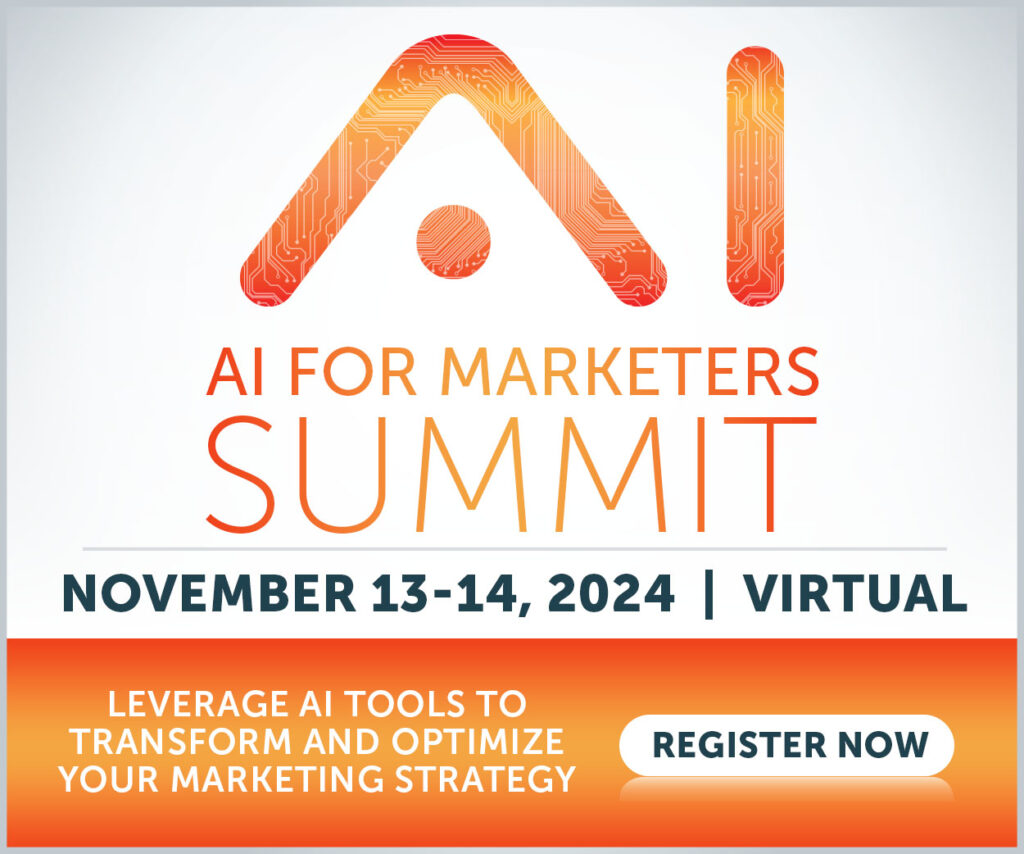As we ease further into 2018, we’ve already seen some seismic disruptions in the tech and advertising world. There was the now infamous (and still ongoing) Facebook/Cambridge Analytica debacle. The social media giant is still reeling from the fallout, as it shined a spotlight on ethics issues related to data harvesting.
However, this topic isn’t limited to political consulting firms or FB’s Ad Manager. Ever-evolving changes in the technological landscape inform how we acquire and process data, as well as how we utilize it to interact in the commercial space and create brand identity. Not only do these tech evolutions affect how brands convert and retain customers, but they also affect how customers engage with brands, pay for goods and services, and safeguard their cybersecurity interests in the era of Big Data.
The need for marketers to adopt a holistic approach to address these issues is necessary now more than ever. And the only way marketers can implement such a strategy is to stay abreast of all such disruptions in the tech space. Because once you start thinking that a change is too esoteric or irrelevant to your marketing goals, then you miss the fundamental truth of technology and commerce in 2018: everything is connected.
Here are seven disruptions that are having an effect this year, and will continue to do so well into the future.
1 – The Rise of AI: From Chatbots to White-Collar Automation
In 2017 we saw advances in AI machine learning that benefited the commercial space. We’ve seen these benefits first-hand as more businesses and applications began utilizing chatbots, virtual conversationalists who are now ever-present in the digital spaces where humans interact. It’s been a dream for marketers who’ve implemented it as a customer service tool, helping to ease the pain points along the buyer journey. But they can help customers in myriad other ways too, from doing research to buying tickets to making dinner reservations.
Of course you can expect this to continue in 2018 and beyond, but the trend goes much deeper than online chatting. Google has planted their flag as an “AI first” company, focusing heavily on applied artificial intelligence to create more “intelligent” products that allow for a more streamlined, more intuitive user experience. Ditto for Microsoft, who are also going all in on AI—they even have a bot development framework.
Expect this to further disrupt commerce, as businesses realize the potential of machine learning as it relates to automating formerly white-collar processes. This includes everything from administrative tasks to, as we mentioned above, organizing and harvesting data. Of course with all this progress there are economic considerations to take into account. For example, in the UK alone, we can expect to see AI automation cost the economy some 861,000 jobs.
So you can only imagine what that portends for the U.S. economy.
2 – Virtual Assistants Become More Popular
As an extension of advances in AI, we can expect to see the popularity of virtual assistants like Alexa and Google Home gain even more popularity in the public consciousness. That’s because it’s increasingly obvious the public is warming to conversational interfaces, what with the uptick in popularity of AI chatbots as well.

Why this technology will remain a player is because it contributes something people in today’s hyper-advanced world need: a seamless and intuitive way to connect with their technology. Marketers should take note because this seamlessness allows more effortless connection between brand and customer. That’s why Amazon and Google have invested as much in it as they have. You can also draw a direct line from AI to increased sales.
3 – The Blade of Prescriptive Analytics Sharpens
The above-mentioned advancements in machine learning allow businesses and advertisers to accumulate ever greater amounts of data. This only increases when you factor in advancements in smart data discovery capabilities that are fundamentally changing how we view analytics. And with more wieldy analytics comes improvements in how we make our marketing decisions as well as the effectiveness of those actions.
The ultimate benefit is that more efficient data organizations will improve how organizations predict development in the marketplace. And at the moment prescriptive analytics is one of the more effective ways to predict the future based on past trends. For this reason, expect it to be a popular trend this year and beyond.
4 – Personalization Becomes Mandatory
According to statistics, 79% of shoppers say they only like to engage with an offer if it has been personalized to them based on past interactions with said brand. The consumer wants brands to know who they are and show it in their marketing. And this percentage of consumers is only expected to grow now and into the future until it becomes boilerplate in advertising.

The trend has major implications on the tech side of things, specifically in terms of waste and efficiency. With greater ability to tailor products and services specifically to customer’s needs comes lower costs and less waste. This will have a positive impact not only on data flows but on product supply chains as well, all while encouraging more capital investments in the process. In the coming years personalization will likely be one of the most important tools to help businesses maximize efficiency.
5 – VR Expands
At least, it evolves from being a hot trend in the gaming and entertainment sector to being a medium adopted by companies in various industries. Statistics show that by 2020 augmented reality technologies will be a 29.5 billion-dollar business. So expect to see VR in the healthcare realm as hospitals utilize the technology for training med students and technicians. Doctors will be able to pre-plan surgeries in a 360-degree virtual environment to maximize the chance of efficacy.
Then there are the other sectors, from real estate to fashion to travel. Imagine being able to provide prospects with a virtual representation of a new home, or offer the shopper a virtual showroom from which to pick out that new outfit. You can even help someone book their dream vacation by transporting them in an instant to a Tahitian beach or a museum in Paris.
What that means for marketers is that the applications for VR are totally wide open. Just because you may not market for a video game company doesn’t mean you won’t be crafting VR campaigns for other industries soon. So to prime you for this brave new world, take a look at some eye-popping VR campaigns that are sure to stoke the flames of marketing creativity.
6 – Sustainability Becomes Mandatory
The reasons for this are twofold. Businesses in many sectors now realize that in order to maintain their commercial strategies, they need to invest in sustainable development. But the market has a say in this as well. The millennial generation—that much sought after demographic with trillions in buying power—have become the disruption: they’re demanding that their brands be socially conscious. That means practicing socially responsible marketing as well as sustainable manufacturing methods.

All the data points to this shift being a win-win for all involved. Many CEOs are on board because they realize that sustainable development can create new economic opportunities. Some projections even state that there’s trillions of dollars in new revenue and hundreds of millions of new jobs just waiting to open up due to such strategies. Even the United Nations has gotten on board with their Sales Development Goals program, which highlights the innovation of businesses and industries around the world.
7 – Blockchain Gains a Foothold
This might be the boldest and most contentious prediction on the whole list. After all, blockchain technology itself is a bold and contentious tech disruption. This esoteric platform geared for crypto-currency transactions is little understood in the public space, as represented by wild fluctuations in the Bitcoin market.
However, in 2018 more and more businesses are experimenting with blockchain technology because they see the potential of reducing costs and improving transparency for customers. This goes beyond just financial institutions. We’re seeing potential for blockchain technologies to create solutions in the energy, healthcare, security, trade and marketing fields as well.
In the digital marketing realm, for example, blockchain’s decentralization effectively removes the media middlemen between advertisers and the audience. Moreover, fewer privacy concerns means advertiser trust will increase, and the inherent transparency of the platform means it will be easier to spot bots, shining a light on the authentic popularity analytics out there. So ultimately, expect to see more and more businesses accepting cryptocurrencies starting with the two main players: Bitcoin and Ethereum.
Conclusion
When compared to the relatively incremental progress technology made in the 20th century, this new millennium is seeing tech advancements at geometric rates. These innovations are spreading to all corners of commerce and society upending marketing analytics and shattering paradigms in the process. So If last century’s marketing was all about speaking to an audience, then marketing in the 21s century is all about opening a dialogue with that audience—having an ongoing conversation. And it’s just these sort of technological disruptions that will facilitate marketers’ ability to engage in that conversation.
 Ryan Gould
Ryan Gould
Vice President of Strategy and Marketing Services
A strategic marketing and branding expert, Ryan helps Elevation’s clients solve their problems and achieve their business goals through integrated marketing solutions distinguished by research, storytelling, engagement and conversion. With a proven track record of energizing brands and having worked with a variety of Fortune 500 companies, Ryan is a respected expert in achieving consistent results through creative design, thought-provoking narratives and innovative problem solving.
LinkedIn: https://www.linkedin.com/in/rygould/
Twitter: @ryanscottgould









